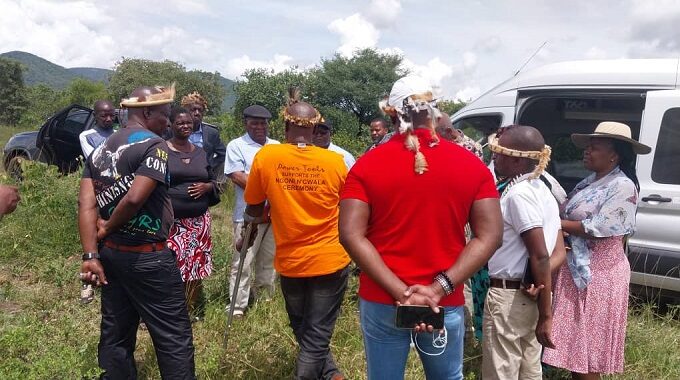OVER 3,000 Zimbabwean illegal immigrants are stuck at the Lindelani Repatriations Holding Centre in Johannesburg, South Africa amid reports that the country’s Department of Home Affairs has no funds to deport them back home. The centre, popularly known as Lindela, is one of South Africa’s largest facilities for the holding of undocumented migrants.
Most of the immigrants will be awaiting determination of their legal status in South Africa (or deportation).
Detainees are repatriated and transported by Home Affairs, almost on a daily basis, to border posts or the OR Tambo International and Lanseria Airports.
It is understood that some of the immigrants have been at the South Africa holding centre for periods ranging from three to eight months with no prospects of them being sent back to Zimbabwe anytime soon.
The development has forced the Home Affairs department to repatriate only those immigrants who are seriously ill by road to Zimbabwe through the Beitbridge border post.
A total of seven sick Zimbabweans were deported from Lindelani Holding Centre on Wednesday bringing to 50 the total number of people who have been deported since January 19 this year.
The deported immigrants are being assisted by the department of Social Services which is issuing travel warrants.
In separate interviews yesterday, some of the deportees said they were suffering from acute respiratory infections (ARI) and have been at the centre for six months.
“I was arrested by the police in Johannesburg last year for not having a work permit and taken to Lindelani Holding centre where I have been staying for the past six months.
“I started having chest pains while at Lindela and have been coughing continuously for the last three months.
“We were also informed by authorities at the centre that there was no money to take us to Zimbabwe and that only those who were seriously ill would be deported using the Department of Home Affairs or police vans,” said Phillip Chivi.
He said he was admitted in an overcrowded clinic for two months until his condition deteriorated forcing authorities to deport him with six others who were in similar condition.
One of the immigrants who was struggling to speak, identified only as Clayton, said he was taken to the holding centre for driving a haulage truck without a work permit.
“When I got to the centre on 6 October last year there were around 1,800 people who were awaiting deportation to Zimbabwe. Some of them said they have been there for seven months.
“The Home Affairs department stopped sending people to Zimbabwe in October last year because of the unavailability of funds.
“Everyone at the centre is frustrated and they desperately want to get out and go home. The place is overcrowded and there are not enough sanitary facilities hence most people end up suffering from similar diseases such as chest pains and coughing,” he said.
The other immigrants said they would seek urgent medical attention once they got to their respective homes. Zimbabwe’s Ambassador to South Africa, Isaac Moyo, could not be reached for comment yesterday as he was said to be out of the country.
Home Affairs Director-General, Mkuseli Apleni and the department’s spokesperson Mayihlome Tswete could not be reached through their mobile phones which went unanswered.
A lady who answered South Africa’s ambassador to Zimbabwe, Vusi Mavimbela’s mobile phone promised to call back but never did and efforts to call again were fruitless.
Home Affairs Minister Cde Kembo Mohadi said he was not aware of the issue.
He promised to follow up the matter with his South African counterpart, Malusi Gigaba.
“I’m not aware of such issues but will follow it up with Gigaba. We spoke on various issues last week but he did not brief me on such developments,” said Cde Mohadi.






